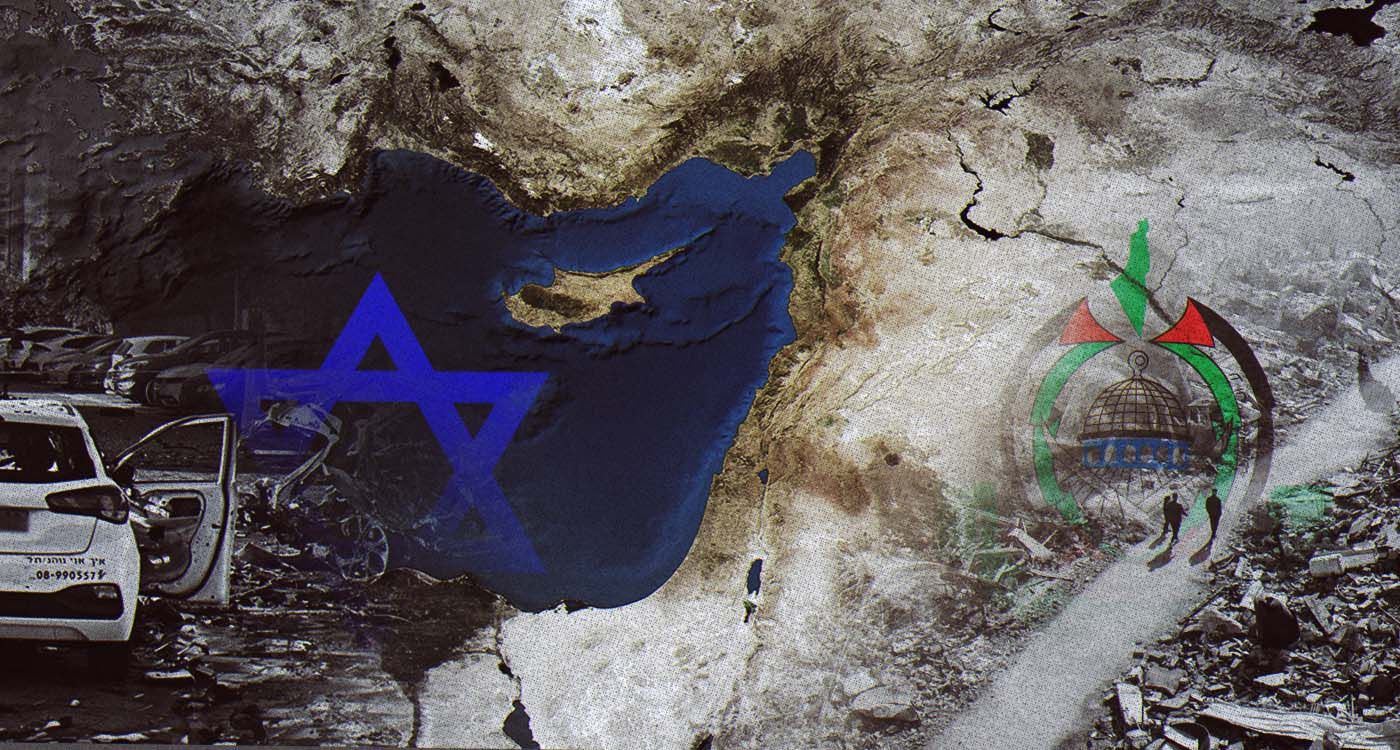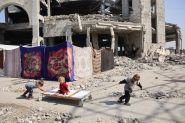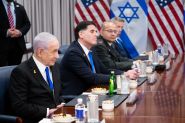- Home
- Middle East
- Apocalypticism and War Ending

©This Is Beirut
The paradoxes of the Islamic summit are blatant and quite equivocal. One wonders what elicited this mobilization after two years of apathy and diplomatic inaction. An early summit could have spared Gaza and its population the tragedies brought about by the apocalyptic vision of Hamas, the cynicism of its handlers and leaders and their ruinous effects. The political apathy is no coincidence; it betrays an intentional complicity that encouraged Hamas and made it double down on its blindness and promote its instrumentation by the clashing power politics operating throughout the region.
The pogrom conducted by Hamas on October 7, 2023, was initially meant to create the congenial environment for the interlocked conflicts and wars that took over the whole region. Power politics calculations were dismissive of the programmed humanitarian tragedies in Gaza and quite interested in exploiting them all along. If the convened countries were concerned with the fate of Gaza and the future of peace in the region, they should have met by far earlier and forced the cessation of hostilities on Iran’s proxies. Their inaction equates with tacit political complicity and moral callousness. They were intent on promoting their political agendas with no regard whatsoever for their impact on the Israeli-Palestinian conflict.
The ultimate paradox is watching Sunni power players converging from different parts of the world working jointly with the Islamist regime in Tehran to address the war issues created in the first place by the Iranian power politics throughout the last twenty years, without making the slightest reference to their destructive role. They felt belatedly threatened by Israel after it destroyed the Iranian operational platform and opened up the path for new regional geostrategic and political dynamics. Why didn’t they meet beforehand to condemn the Israeli transforming dynamic after two years of its onset and outcomes?
They suddenly felt that a presumptive Islamic community was about to birth a unified geopolitical dynamic? They felt the urge to overcome their geopolitical and political differences and unite their stand since the “sovereignty” of a major Islamist power broker was trespassed by Israel. How hypocritical on the part of power players that spend their time undermining each other’s security. What made them sound this awakening alert while they were sheltering behind the complacency they professed throughout the last two years? Amazingly enough, what made them react is the emergence of new strategic imponderables questioning their hypothetical equilibriums, their acute sense of insecurity, and their need to deflect the arising pressure, to externalize the blame, and to safeguard a widely challenged sense of immunity.
Israel, on its side, was compelled to achieve what it started and put an end to the open-ended state of war. The ambivalence of the Qatari role is symptomatic of the cynical game of a power player that has no interest in immediate conflict resolution at a time when Israel has to wrap up its lingering wars after tackling their attending security hazards. The ultimate assault on Hamas leadership in Qatar, however fraught with pervasive imponderables, was the collateral of a failed diplomacy to sway the nihilistic and highly manipulated Hamas policy course, which has led to the destruction of the Gaza district and its political inconsequencies and humanitarian tragedies.
This cynical policy was intentional because the politics of victimization was the ordering variable around which the various modus operandi revolved, notwithstanding their disastrous fallouts. This conflictual plot with its interlocking parties extending between Yemen and Gaza has to be untied either way. None of the nodes could be dealt with separately; it should be addressed diplomatically or militarily, but it cannot endure anymore.
If these convening parties are serious about finding a working solution to the intermeshing conflictual plot, Hamas should be coerced into major concessions in regard to the hostage issues, their inevitable withdrawal from the military and political scene and the formation of a transitional government. So is the situation in Lebanon, where Hezbollah is bent on wrecking the disarmament process jointly with its accomplices in the Palestinian camps. The inability of Lebanon to recover its operational statehood is dooming and leads tendentially to its disintegration and to the consolidation of regional chaos. The same scenario holds in Yemen, where the Iranian-driven Houthi civil war and marauding politics are putting at stake civil concord and Gulf security.
Now that they have met, why shouldn’t they convince Iran to renounce its destabilization politics in the Near East and within what is considered to be the Sunni political realms? Shifting the blame on Israel is a red herring and an idle ploy designed to ignore the real issues and to overlook the search for a sustainable course of deconfliction and negotiated conflict resolution in a situation of extreme volatility. One wonders whether a diplomatic breakthrough is going to force its way and take over the collision course and its multiple derailments, and their impact on peace and stability. Skepticism and prudence in this regard are mandated, be it from methodological or political standpoints.
Read more




Comments